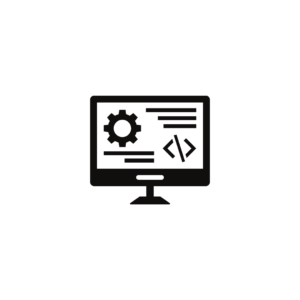Description
Curriculum for D.Voc. in Data Analytics
A Diploma in Vocation (D.Voc.) in Data Analytics focuses on the skills and knowledge needed to analyze, interpret, and leverage data for decision-making in various industries. The curriculum typically combines theoretical learning with practical applications to prepare students for roles in data analysis. While specific courses may vary by institution, here?s a common outline of the curriculum:
Introduction to Data Analytics
Overview of data analytics concepts, the data analytics lifecycle, and its importance in business and decision-making.
Statistics for Data Analysis
Fundamental statistical concepts and techniques used in data analysis, including descriptive statistics, inferential statistics, and hypothesis testing.
Data Visualization Techniques
Tools and techniques for visualizing data effectively, including the use of software like Tableau or Microsoft Power BI.
Data Collection and Management
Methods for collecting, cleaning, and managing data, including best practices for data integrity and storage.
Data Mining and Processing
Techniques for discovering patterns in large datasets, including clustering, classification, and regression analysis.
Introduction to Programming for Data Analytics
Basic programming skills in languages commonly used in data analytics, such as Python or R, focusing on data manipulation and analysis.
Database Management Systems
Understanding relational and non-relational database systems, SQL for querying databases, and data retrieval techniques.
Predictive Analytics
Introduction to predictive modeling techniques and tools used to identify future trends based on historical data.
Data Ethics and Privacy
Exploring ethical considerations in data analytics, including data privacy laws, compliance, and responsible data use.
Capstone Project or Case Studies
Practical application of skills learned through projects or case studies, where students analyze a real dataset and present findings.
Business Intelligence
Understanding how data analytics fits into business strategy, including decision-making processes and performance metrics.
Internship or Practical Training
Hands-on experience through internships or practical training in organizations, providing exposure to real-world data analytics processes.
Duration of the Program
The duration of a D.Voc. in Data Analytics typically ranges from one to three years, with most programs designed to be completed within two years. This duration includes a blend of theoretical instruction and practical training components.
Career Opportunities After Completing D.Voc. in Data Analytics
Graduates of the D.Voc. in Data Analytics can pursue various career paths, as data analytics skills are in high demand across many industries. Some potential career opportunities include:
Data Analyst
Analyzing data to uncover trends, patterns, and insights that support business decisions.
Business Analyst
Working closely with stakeholders to understand business needs and using data to identify solutions and improvements.
Data Scientist
Applying advanced analytical techniques and algorithms to interpret complex data sets and derive actionable insights.
Data Visualization Specialist
Creating visual representations of data to convey findings and insights effectively to non-technical audiences.
Market Research Analyst
Analyzing market data to understand consumer preferences, market trends, and competitive landscapes.
Data Engineer
Designing and maintaining data pipelines, ensuring that data is accessible and usable for analytics purposes.
Statistical Analyst
Using statistical methods to analyze data and develop forecasts or predictive models for businesses.
Financial Analyst
Analyzing financial data to help organizations make investment decisions, manage risks, and forecast revenues.
Operations Analyst
Utilizing data analytics to improve operational efficiency, reduce costs, and enhance productivity within organizations.
Research Analyst
Conducting research and analyzing data to support product development, marketing strategies, or organizational decision-making.
Consultant in Data Analytics
Providing expert advice to organizations on data strategy, analysis, and implementation of data-driven solutions.
Entrepreneur or Freelance Analyst
Starting a consultancy or providing freelance data analytics services to various clients across industries.
Conclusion
A D.Voc. in Data Analytics prepares students with essential skills and practical experience needed to succeed in the growing field of data analysis. The curriculum, combined with hands-on projects and internships, equips graduates for diverse career opportunities in various industries. If you have further questions or need more information about this program, feel free to ask!









